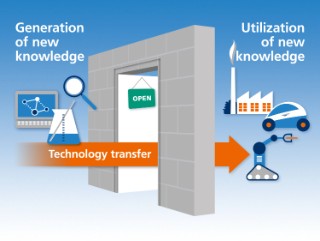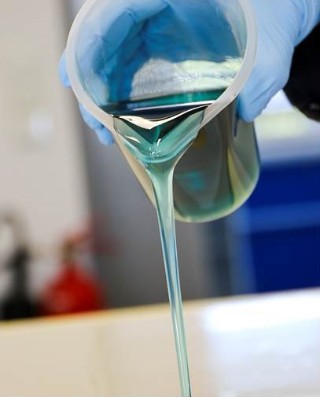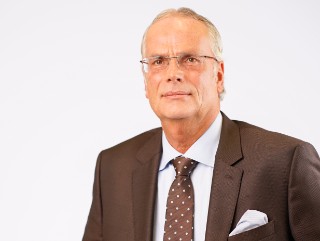
A success story celebrates its anniversary: How the adhesive bonding engineer course has developed since its inception in 2001 to the present day, with over 1,200 graduates.
more info
A success story celebrates its anniversary: How the adhesive bonding engineer course has developed since its inception in 2001 to the present day, with over 1,200 graduates.
more info
The publication of DIN 35255 marks the first independent standard for the quality-oriented development of fibre composite components. It closes an important gap in quality management and places new demands on companies that develop, design and manufacture composite structures. To provide targeted support for the transfer into operational practice, Fraunhofer IFAM is offering a two-day workshop in March 2026. In this interview, Stefan Simon explains the objectives of the standard, how companies can benefit from its application – and what participants can expect from the workshop.
more infoPersonnel qualification as an indispensable part of modern technology transfer

Technology transfer as a ‘door opener’ between research and application-related utilization
New developments thrive on research and development, i.e. on the generation of new knowledge. New knowledge is not an end in itself. New knowledge must find its way into application in order to be economically viable. To do this, it must be transferred from research and development to the manufacturing companies in industry and handicrafts. With its further training offers, the Fraunhofer IFAM is working to simplify this process. Successful and long-term technology transfer is only possible through the qualification of company personnel and the structuring of the organization of company production processes.
more info3 Questions to ...Claas Hoffmann about the opportunities and challenges in the repair of fibre composite plastics

Fibre-reinforced plastics require comprehensive knowledge and professional repair facilities.
Fibre-reinforced plastics usually have high specific stiffness and strength. This makes them suitable materials for lightweight construction. They are used in aviation, marine, wind energy, rail vehicle construction and many other industries. However, in their application they are exposed to enormous environmental influences which can have a detrimental effect on their service life: Temperature fluctuations, humidity, UV radiation, mechanical stress, salts or other chemical compounds. The consequential damage is often not visible and is not noticed, but this can have fatal consequences. Therefore, comprehensive knowledge of the properties of fibre-reinforced plastics is necessary as well as the possibility of professional repair.
more info
Shell magnets glued to the rotor of an electric motor
The third Bremen Bonding Days will take place from 29 to 30 October 2025 at the Fraunhofer IFAM in Bremen, Germany. Dr Holger Fricke, Head of the Department of Adhesive Bonding Technology at Fraunhofer IFAM, explains to us in an interview what the Bremen Bonding Days are and how they differ from the German-language »Bremer Klebtage«.
more info
A misunderstanding is a communicative disturbance resulting from the difference between what is meant by a sender and what is understood by the recipient. It often occurs due to a lack of knowledge. We want to counteract this with this blog article, which deals with the misunderstood role of adhesive bonding technology in discussions about the circular economy.
more info
Sicherheit durch Normen: Die Schlüsselrolle von QS-Normen in der Kleb- und Faserverbundtechnologie
The Product Safety Act (PSG) requires a "state of the art" for safe products. For demanding processes such as bonding and fiber composite technology, which cannot be tested non-destructively, ISO 9001 requires a quality management system. In order to meet the legal standard, specific quality assurance standards are introduced that are aimed at technologically specific requirements and cover the entire product life cycle.
more info
Dr. Tanja Warratz explains the exchange formats and the involvement of the Continuing Education and Technology Transfer department in social media.
more info
The theoretical aspects of the bonding practitioner are brought closer to the participants and conveyed in a user-friendly way with vivid animations.
Ten participants successfully completed the first blended learning course of the Bonding Technology Training Center at the Fraunhofer IFAM in fall 2019. The theoretical contents of the course to become a DVS®/ EWF bonding practitioner took place online for the most part. This online phase was supplemented by a three-day presence phase at the institute, during which the theoretical knowledge previously learned was put into practice. Dr. Effi Baumgarten is responsible for the blended learning offers in the Bonding Technology Training Center at the Fraunhofer IFAM and provides an insight into the new course concept.
more info
Dr. Effi Baumgarten
TDr. Effi Baumgarten is responsible for the online learning offers in the Training Center for Adhesive Bonding Technology at Fraunhofer IFAM and gives an insight into the new course concept Adhesive Bonding Engineer Online (blended learning). Videos with professional speakers and with lectures by Fraunhofer experts, learning checks and group chats - these are just a few of the multimedia formats that make learning easier for participants in online self-study.
more info